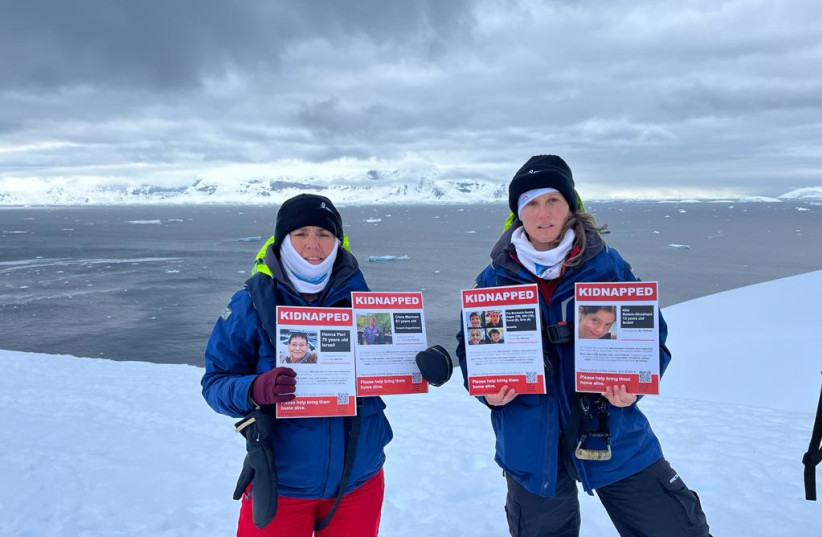Two scientists from the University of Haifa who had scheduled a trip to Antarctica a long time ago and even planned to raise the national flag there have now raised the blue and white there. “Now in light of the war, the raising of the flag of Israel also here becomes much more significant and powerful. It was an extremely moving moment,” said Dr. Tal Luzzatto Knaan, an expert in functional metabolomics and natural materials, and Prof. Tali Mass of the marine biology department.
Luzzatto Knaan earned her master’s of science degree in biotechnology and doctorate in biochemistry from the Hebrew University of Jerusalem. As a Vaadia-BARD postdoctoral fellow, she interned with Prof. Pieter Dorrestein at the Skaggs School of Pharmacy and Pharmacological Sciences at the University of California, San Diego and a second fellowship with Prof. Daniel Sher in Marine Biology at the University of Haifa.
Her lab pioneers the field of ‘functional metabolomics’ by combining analytical chemistry with molecular biology to understand the expression patterns and functions of molecules. In exploring the diversity, distribution, and potential drug discovery investigate key questions such as what molecules are produced; when and where they’re expressed, what their biological and ecological roles are, and how we can benefit from them as innovative drugs, bioremediates or nutrition substitutes. As a result, there can be new understanding of the ecological context of marine natural products and utilities “from Seabed to Bedside.” She said she is passionate about science, chemistry, and ocean life and always amazed by how a single molecule can make a huge impact on living organisms.
Mass, a researcher in coral ecology and marine animals at the coral biomineralization and physiology lab who received her PhD from the Hebrew University, focusing on coral physiology. She then did a post-doctoral fellowship on coral biomineralization at Rutgers University.

Expedition is part of larger women-in-STEMM effort
Mass and Luzzatto Knaan went to the bottom of the southern hemisphere as part of the “Homeward Bound” program – an international initiative of women with a background in STEMM (science, technology, engineering, mathematics and medicine) whose goal is to create a global network of women with a scientific background who will lead and solve global challenges for the benefit of all humanity.
Together with them on the ship are dozens of women from all over the world, and it was clear to the two of them that they would use the journey to describe the situation in Israel and especially to talk about the abductees. “It was obvious us that in a journey that talks about leadership, it is impossible not to talk about our abductees. At first there was resistance to us talking about politics, but we did not give up, and in the end, we told our foreign colleagues about what is happening here in Israel from our own eyes. We showed them photos and videos of the abductees, and we are sure that quite a few of them, who were exposed to things for the first time, now understand the situation better,” they concluded.
